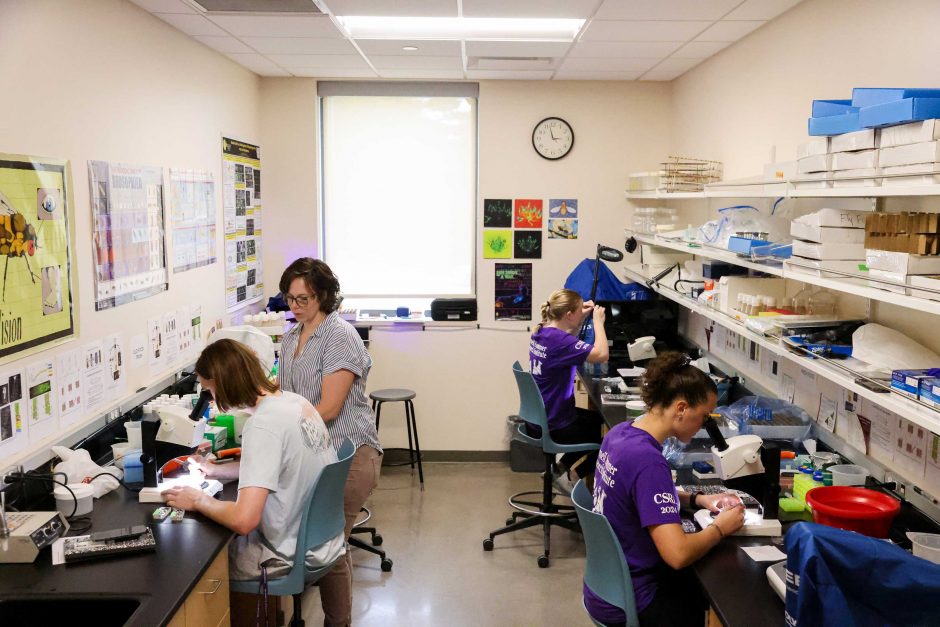Cornell signs innovative infrastructure agreement
Cornell College is working with a global engineering company to make $5.9 million worth of infrastructure improvements on campus.
 Johnson Controls, a diversified technology and multi industrial leader with North American headquarters in Milwaukee, Wisconsin, approached Cornell with an innovative funding program to keep up with expensive maintenance costs.
Johnson Controls, a diversified technology and multi industrial leader with North American headquarters in Milwaukee, Wisconsin, approached Cornell with an innovative funding program to keep up with expensive maintenance costs.
Engineers from the firm targeted several areas of campus infrastructure in need of repair, which will result in a 20% reduction in energy usage across campus. The work will include installing high-efficiency boilers to remove the final eight buildings from the campus steam plant, putting in new windows on two buildings (Old Sem and College Hall), and upgrading nearly every campus building with LED lighting.

“This program enables us to make rapid progress on what were formerly mid-term goals,” said Cornell President Jonathan Brand. “We will be able to get entirely off of the steam plant, something that we have been hoping to do for years, as well as undertake several environmentally important projects without overburdening our budget.”
Johnson Controls sets up a contingent payment program with the college, which is an alternative to traditional debt financing and does not impact existing debt obligations.
“Contingent payment programs are unique in the marketplace because Johnson Controls doesn’t get paid unless we produce the mutually agreed-upon result,” said Aaron Rittenhouse, Midwest Program Leader with Johnson Controls. “If there’s a shortfall, we have an obligation to fix the root causes for it and if we overperform, Cornell keeps the additional savings. The risk is fully transferred to Johnson Controls.”
The contingent payment program agreement guarantees that the infrastructure upgrades will produce savings that repay Johnson Controls for the project costs over the next 18 years.
“This work will not only create a better environment for our students, faculty, and staff, but it will help us save money and eliminate wasteful expenses without taking out loans or issuing bonds for these projects,” said Cornell Vice President for Business Affairs and Treasurer Kay Langseth.
The company selected Cornell for this endeavor after seeing the institution’s steady enrollment, firm endowment fund levels, and good credit.
Johnson Controls will continually monitor progress and provide an energy report every year to ensure the company’s projects are providing the agreed-upon savings. Brand said the campus community will notice the difference.
“Our students, faculty, and staff will know that this project will liberate additional funds that can be used elsewhere; that heating/cooling and lighting will be better; and that we are now able to make some important environmentally appropriate steps,” Brand said.
Contractors began working on the upgrades in August 2019 with plans to remove buildings from steam heat usage by Thanksgiving 2019. The remainder of the work will be completed over the next year.



